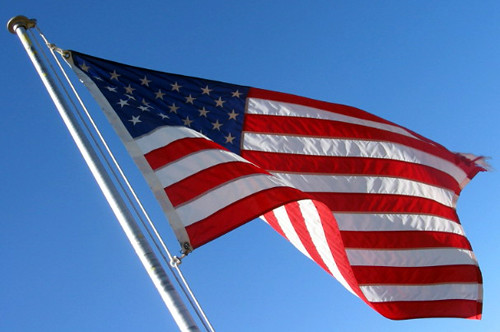| The 2008 U.S. Presidential Election and the Asian Factor |

|

|

|
| Features | |||||||||||||||||||||||||||||||||||||||||||||||||||||||||||||||||||||||||||||||||||||||||||||||||||||||||||||||||||||||||||
| Sunday, 02 November 2008 | |||||||||||||||||||||||||||||||||||||||||||||||||||||||||||||||||||||||||||||||||||||||||||||||||||||||||||||||||||||||||||
|
There’s a term coined by the political pundits for someone like me who suffers pangs of withdrawal, if I’m not constantly checking the Internet, MSNBC, CNN, BBC World and a whole host of broadsheet papers - yes, I have “Obsessive Compulsive Election Disorder” or OCED. The cure will come when a new president of the United States is elected. We are so close: only a matter of hours. Polls, polls and more polls – I love it. Universal Suffrage I have always believed in a citizen’s responsibility to his or her community, which includes a responsibility to vote. Growing up in England, I was involved from a young age with community service and then at university with student politics. I felt I had come of age and fulfilled my responsibility as a British citizen when I first cast my ballot in a general election. It’s been encouraging to see the high numbers of new voters who have registered to vote during this presidential election cycle – young people, minorities and older people who have never voted in their lives before. Whatever your politics, I think it’s not only your duty, but also your basic right as a citizen to vote. We can’t forget how people became activists, were imprisoned and died to get the vote for major sectors of the population. In America, women only received the right to vote in 1920. And it wasn’t that long ago, 1943, when Chinese immigrants to the United States were given the right to citizenship and the right to vote after a major civil rights victory when the Chinese Exclusion Act was repealed. High Notes and Low Notes In the midst of a deep economic crisis – bank failures, a huge government rescue of Wall Street, foreclosure, failing companies and job losses – Americans want and need hope and change. I have never seen so much energy, debate and highly-charged emotions during a campaign in the years I have lived in America. As much as there has been positive change promised by both presidential candidates and the high notes of inspirational speeches, there have been strident low notes for me, such as charges of anti-Americanism levied at Obama and so-called liberal-leaning parts of the country from the conservative right of the Republican Party. I love that America is made up of immigrants and descendants of immigrants, but now I feel let down. It seems for some people, there are shades of immigrants. You can be born here and not be American enough. My children were born in America. Will they be American enough? They have different names, look different and have a different background. Will they forever have to explain and justify they have British-Chinese parents and grandparents from Hong Kong; they were born in upstate New York and now integrating in the south? Asian-Americans My children are classified by the U.S. Census as Asian-Americans, i.e., Americans with Asian ancestry. However, this group isn’t homogeneous; it includes Chinese, Filipinos, Indians, Pakistanis, Koreans, Japanese, Vietnamese, Cambodians, Laotians, Hmong and Thais. According to the Census Bureau (2005), U.S. residents who say they are Asian or of Asian descent were estimated to number around 13.5 million in 2005. In 2007, the estimated number of Asian-Americans was 15 million or 5 percent of the U.S. population; a 25 percent growth in the last seven years. Of those, some 8.7 million were foreign-born with 1.7 million from China alone. In the past, Asians have been reluctant voters, but they are emerging as a visible and critical mass of potential voters for both political parties. While Asians predominantly live in urban and traditionally safe Democratic areas on the West and East coasts, in recent years, they have been growing in population and influence in toss-up states, such as Nevada, Colorado, Virginia and Florida. In the present election, these are the swing or battleground states where the race could be won by either candidate with mere hundreds of votes. Every Vote Counts I arrived in America and lived in Florida during the time of the 2000 presidential election between George W. Bush and Al Gore. I held my breath as I watched (with the rest of America) the drama of alleged voting irregularities in Florida, lawsuits, hanging chads and recounts. Bush won the presidency by 537 votes in Florida and there lies the moral of the story – every vote counts. Fast forward to 2008 and Asian-Americans are the swing voters that could tip the balance. The national polls show that 10 percent of Asian voters are still undecided. Both candidates need those undecided votes in the states they need to win to secure the Electoral College and the winning number of 270 votes to become the President. Diverse Voters In the past, both parties have only paid nominal attention to the Asian vote. The problem has been the diversity of the Asian groupings with no common language, as per the Latino vote, to easily do outreach work. However in this election, both campaigns have some form of national Asian outreach with language-specific volunteers registering new voters and get them out to vote (Democrats) and securing the endorsement of community leaders (Republicans). As well as cultural diversity, Asian-Americans have diverse ideological positions. As many as two-thirds of Asian-Americans are foreign-born and haven’t been raised with a history of American politics or family political loyalties making them the classic swing voters. In some communities, such as the Vietnamese, people have tended to vote Republican because of the party’s platform of opposing Communism, supporting small businesses and emphasis on conservative family values. In the 2008 election, many Vietnamese-Americans are voting for McCain because of his bravery and war record in Vietnam. Many of the Asian foreign-born immigrants have American-born children who have grown up in the American system. Many are well-educated, in professional jobs and more assertive than their parents. Many of these younger voters are supporting Obama because they can relate to his diverse background, race neutral world view and his positions on policies. Come 4th November we shall see who has won the Asian-American swing votes. Future candidates beware; ignore the Asian-American vote to your peril. More efforts have to made, if either party wants to win the growing Asian-American vote starting with more outreach programs, including campaign literature, policies and TV ads translated into original languages. And now I have to go back to checking the polls as I await the results of the 2008 presidential election with bated breath. Your Views Have you been following the 2008 U.S. presidential election? Who do you think will win? Is the British-Chinese vote any different to the Asian-American vote? Please leave your comments below or email me direct at This email address is being protected from spam bots, you need Javascript enabled to view it . SUSAN S. CHEUNG. US flag by Elaron.
|
|||||||||||||||||||||||||||||||||||||||||||||||||||||||||||||||||||||||||||||||||||||||||||||||||||||||||||||||||||||||||||






 I have become a junkie. I can’t get enough of the 2008 U.S. presidential election between the Democratic nominee, Barack Obama, and the Republican nominee, John McCain.
I have become a junkie. I can’t get enough of the 2008 U.S. presidential election between the Democratic nominee, Barack Obama, and the Republican nominee, John McCain.
